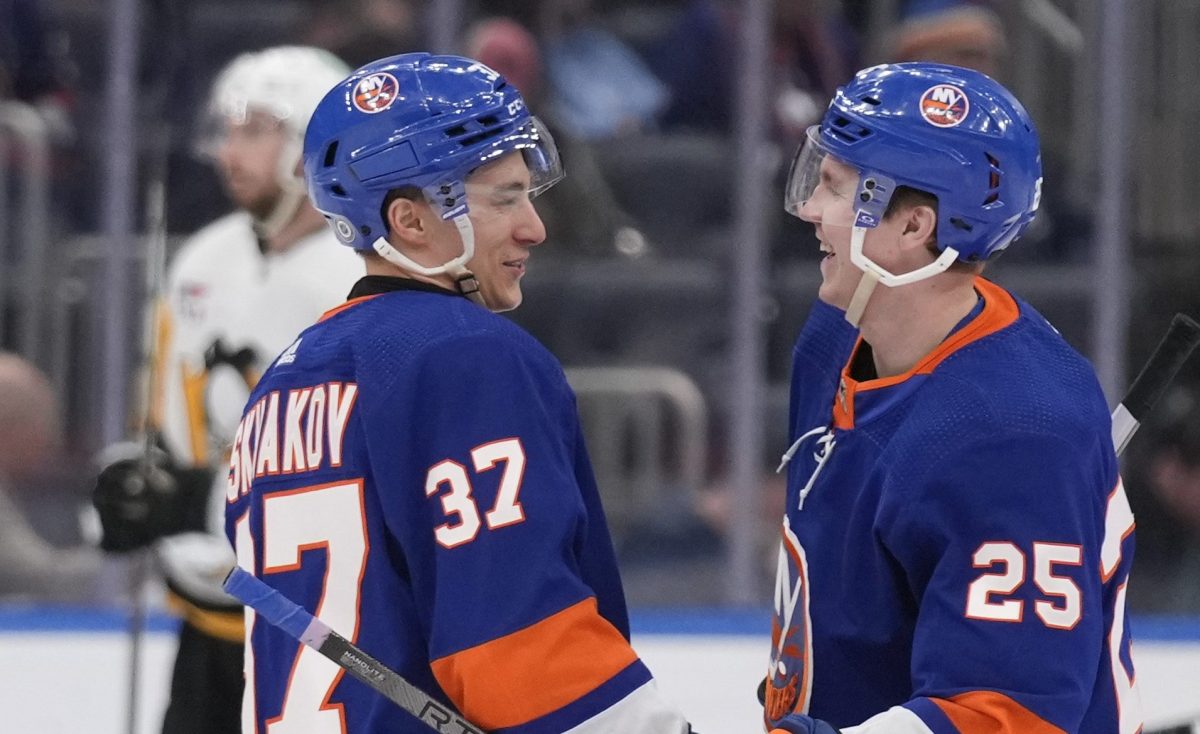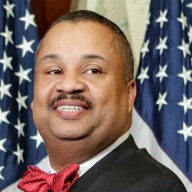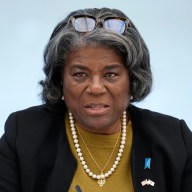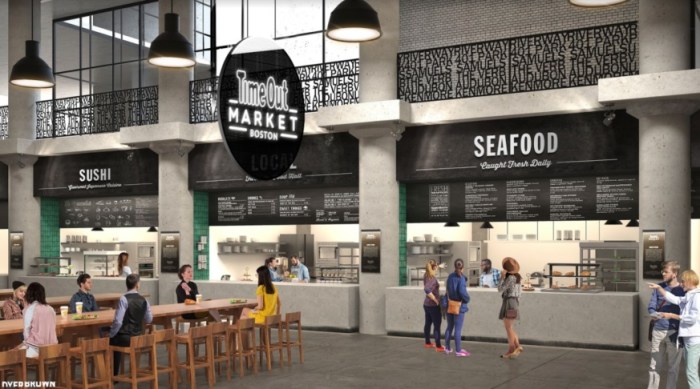In the midst of Women’s History Month, we spoke to Boston at-large city councilor Ayanna Pressley — the first black woman elected to that body in the city’s history — about race, gender and politics. Boston is considered by some to be this bastion of progressive thought, but we’ve never had a black or female mayor, why do you think that is?
First, I’d like to speak to why we have a government that is reflective of the people it represents and serves. That’s important.
The issues that we work on and the approach to those issues will suffer if you don’t have a diversity of opinion and thought.
I think that’s proven by my election as the first woman of color elected to the body, that there are a set of issues ranging from human trafficking to poverty to trauma that are being addressed on this body because of my personal lens and perspective. If the body is completely homogenous and completely monolithic than the issues you work on and how you approach them will be the same. I think my election is reflective of progress but whenever I’m announced at an event as the first woman of color elected to the council and people clap enthusiastically, I always discourage them from that because it is a sad commentary that it took that long. Next week, I’ll be doing an event to honor the women serving on the council before us. It’s been a paltry number. There’s been 10 women to serve on the council in the history of this body.
What do you attribute that to?
There are barriers to a greater diversity of people running for office.
Voters tend to gravitate toward a very specific narrative and profile of a candidate. For example, when I first ran, at the time, I was a single unmarried woman without children.
That was an adjustment for some people because they gravitate toward one specific sort of narrative for their female elected officials. For one, there needs to be a culture shift and a receptiveness and an appetite for a diversity of perspective in government. I think we’re getting there. We have to eliminate the barriers that make it harder for diverse people and women to run for office. It’s harder for women to raise money, for instance.
Do you consider Boston to still be an old boys club?
Politics is the number contact sport here. This is not for the faint of heart. I don’t think that’s unique to Boston that the politics is a boys club here. Politics is a boys club. It’s a man’s world. This is why we continue to fight for gender parity and equality in our policies. That’s not unique to Boston. But I do have to say the fact that I am currently in my third term, pursuing a fourth term, I’ve been the top vote-getter twice. That’s indicative of a shift in the city of Boston. Not only that women can run and win, women of color can run and win, but they can run on a platform that people at one point would have considered polarizing, issues centered around girls and women. Issues some consider provocative. When I ran, it proved that issues that disproportionately impact women and girls, issues like poverty, violence and trauma are neighborhood-transcendent issues.
What are some specific examples of double standards or blatant sexism during your political career?
There were many people who questioned my ability to champion Boston public schools. This is also a parochial town and I’m not a native Bostonian. I didn’t go to Boston public schools and people would say ‘You don’t have children in Boston public schools.’ They would question my ability to understand the struggles of everyday families because I wasn’t married. I think the fact that as only woman running in a field of 15 candidates in 2009, the fact that I was repeatedly asked If I was married and when I would say no, I was asked why. I think that’s sexist. I find the young women I work with who are aspiring to run for office, they’re often worried about the stigma.
On the one hand voters want you to be a mom, but on the other hand they question whether you can juggle being a mom and meet the demands and the problems facing this city. They don’t ask the same questions of men who are dedicated fathers. You said during a speech earlier this month, “If you attempt to govern on behalf of girls and women, people get uncomfortable” What did you mean by that?
When I ran the first time, I said I was running to save girls and they didn’t even necessarily know they needed saving. People were questioning whether that was a platform that would resonate, whether that was a winning platform. When people conceded that — ‘Ok, well she won, that’s nice’ — I think people doubted that I would choose to govern that same way.
When you’re working on issues such as sexual assault, you know I’m a survivor, when you’re talking about sexual trafficking, poverty, trauma in all forms, these are issues that make people uncomfortable. Is theBoston school district where it needs to be in terms of sex education?
I worked for three years with a broad-based coalition of advocates to see Boston public schools adopt a district wide comprehensive, medically accurate, culturally competent, age appropriate sexual health curriculum as a part of its wellness program including increased access to condoms. We’re now focused on how we implement that curriculum. It’s a victory that curriculum has been adopted. Now we’re working to make sure it’s implemented and implemented district wide and access to that information is not arbitrary and ad hoc. I’ll tell you, in our school -based health centers, the top two reasons why young people cross that threshold and go to those health centers are mental health challenges and sexual health questions. We are better than we used to be, we’re still not who we can be. That’s true for many issues.
You mentioned sex trafficking. How big of a problem is sex trafficking in metro Boston? Earlier this month, Boston Mayor Marty Walsh launched an initiative called CEASE Boston does that doing enough to tackle that issue? Does more need to be done? Sex trafficking is a real and pervasive issue. It’s been harder to combat and reduce the demand because this isn’t just young girls being exploited in broad daylight.
It’s really gone under the cloak of night into hotel rooms with ads on backpages.
It has evolved. In the evolution it’s become much more challenging to combat it and reduce the demand.
Marty Walsh has been an incredible leader in this fight and partner with me. I think he’s demonstrated great moral courage.
People question how relevant it is because they think of trafficking as an international issue and not a domestic issue, not a city issue, not neighborhood issue. When in fact it is. Our young people, and disproportionately our girls and our LGBT homeless youth who are trading sex for shelter, are vulnerable to exploitation and abuse. The way we end that is to reduce the demand, that is what mayor walsh is doing. Initiatives like CEASE, what we’re able to do is to stop prosecuting these girls, who are being exploited and abused, and to go after these johns and these pimps and to reduce the demands. I’m very encouraged by where we are right because five years ago, when I created the committee on healthy women, families and communities, people were skeptical that that was a real issue. So it’s progress that we have a mayor who’s been taking this on in a real way. Boston was recently ranked as having the third highest rate of income equality among the country’s 50 largest cities. What needs to happen for that income gap to close?
Clearly, there are institutionalized and systemic problems that you’re looking at here. Social determinants that are creating a situation where you have a widening inequality. You see it disproportionately being borne by African Americans and Latinos, which is also what that report spoke to, that economic recovery is coming but whites and Asians are faring better in that economic recovery than Latinos and African Americans. Not only do we continue to see a growing inequality chasm, as I said earlier more of our households are headed by women and we know that women are not paid according to their worth. This touches so many issues. We have an affordable housing crisis in the city. We have a knowledge based economy but we’re still struggling to provide equality and access to quality education for everyone. There are a host of issues. No, there’s not enough being done. There are a lot of minds committed to this, mine included, but we have much more work to do.
Where is Boston at in terms of race relations? And what are your thoughts about the city’s reaction to the non-indictments in the deaths of Michael Brown and Eric Garner?
We are better than we used to be, but we’re still not who we can be. We have to continue to have these tough conversations. To push to change the culture and to have policies and to be a city that is welcoming and inclusive. And that’s about much more than just being tolerant. That isn’t the fight. The fight is greater understanding, greater empathy, greater equity and opportunity. As far as how the city handled those verdicts, I think it was handled well. It was inspiring to see young people mobilized and engaged in social justice issues. I thought police supported protesters in having a space to peacefully demonstrate. I think we handled that well. The real test for how we’re handling the issue of race and police and community relations is what we do beyond those protests. Those are the conversations and the work that is being done right now, to be sure we’re addressing the root cause of that issue. It’s about so much more than how the city responded in the wake of those verdicts, which I personally consider to be miscarriages of justice. Boston Olympics. Good idea or no?
You know, I would say I’m skeptical. Whether or not it is an opportunity for unprecendented public and private partnership remains to be seen.
Would you support a citywide Olympics referendum?
Of course.
My concern is that this becomes potentially a distraction and not an enhancement. We have so many pressing issues that we just discussed. Wealth and inequality. Lack of affordable housing. The status of our schools. Violence, trauma. This is topical but there are so many more issues.
My focus is around diversity and inclusion in this discussion. I want to see that we’re not just verbalizing commitment to diversity but we have a plan to be implemented should the games come here to ensure there’s an equity and opportunity for women, for the LGBT community, for those that are disabled and people of color for contracting opportunities, in the planning, etc. The other issue I’m focusing on is if the games comes here, we should have a strategy so we don’t see an uptick in sex trafficking. We have seen in other cities that host megasports events, there is often a correlation there. We started off with me asking you why Boston hasn’t had a female or black mayor. The obvious follow-up: are you going to be the one that breaks those so-called glass ceilings?
I’m running for re-election. I love what I do. I love being this close to the people. It’s a huge platform, I get to actualize my values everyday. Right now I’m running for a fourth term. I’m focused on the work. This interview has been condensed and edited.
‘There are barriers to a greater diversity of people running for office’
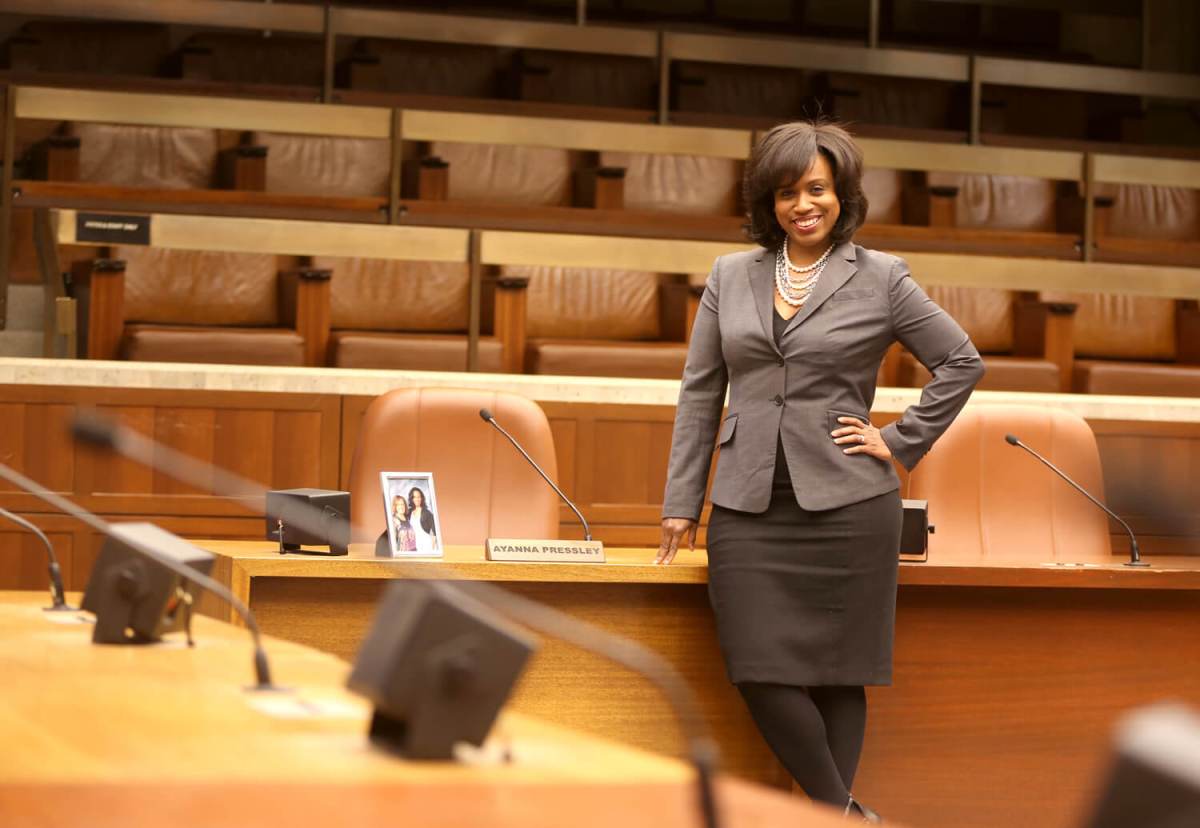
Nicolaus Czarnecki/Metro





